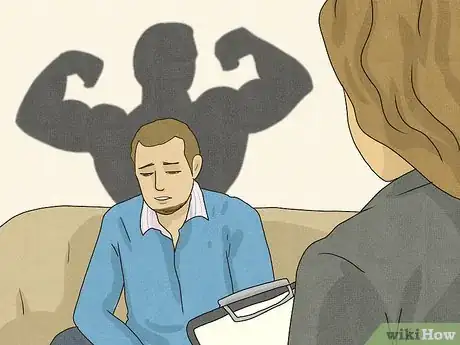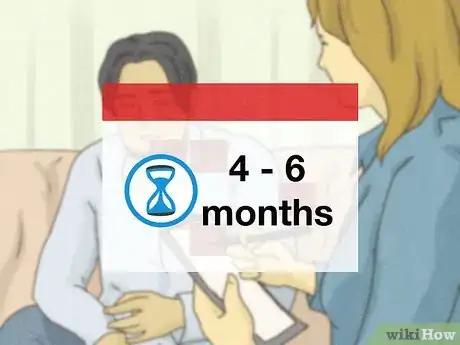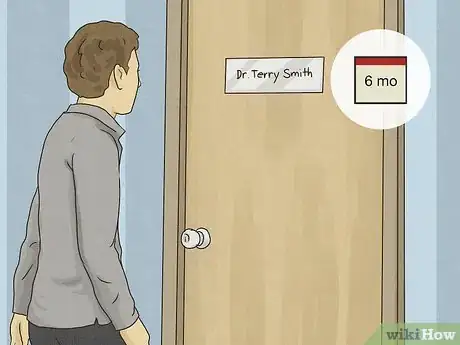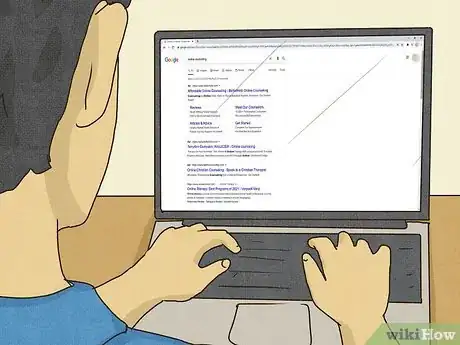This article was co-authored by Tracy Carver, PhD and by wikiHow staff writer, Hannah Madden. Dr. Tracy Carver is an award-winning Licensed Psychologist based in Austin, Texas. Dr. Carver specializes in counseling for issues related to self-esteem, anxiety, depression, and psychedelic integration. She holds a BS in Psychology from Virginia Commonwealth University, an MA in Educational Psychology, and a Ph.D. in Counseling Psychology from The University of Texas at Austin. Dr. Carver also completed an internship in Clinical Psychology through Harvard University Medical School. She was voted one of the Best Mental Health Professionals in Austin for four years in a row by Austin Fit Magazine. Dr. Carver has been featured in Austin Monthly, Austin Woman Magazine, Life in Travis Heights, and KVUE (the Austin affiliate for ABC News).
This article has been viewed 9,110 times.
While stigma surrounding mental health is definitely improving, there are still some misconceptions about therapy and counselling in general. Myths like these can prevent people from getting the help they need, which can exacerbate mental health issues in the long run. We’ve addressed some of the most common misconceptions about therapy so you can learn more about it and what it can do for you.
Steps
References
- ↑ https://comprehensiveclinic.byu.edu/debunking-12-myths-about-therapy
- ↑ https://www.apa.org/topics/psychotherapy/myths
- ↑ Tracy Carver, PhD. Licensed Psychologist. Expert Interview. 12 January 2021.
- ↑ https://www.psychologytoday.com/us/blog/the-right-mindset/202005/10-common-myths-about-therapy
- ↑ https://www.psychologytoday.com/us/blog/the-right-mindset/202005/10-common-myths-about-therapy
- ↑ Tracy Carver, PhD. Licensed Psychologist. Expert Interview. 12 January 2021.
- ↑ https://psychcentral.com/lib/9-myths-and-facts-about-therapy#3
- ↑ Tracy Carver, PhD. Licensed Psychologist. Expert Interview. 12 January 2021.
- ↑ https://www.apa.org/topics/psychotherapy/myths



































































Medical Disclaimer
The content of this article is not intended to be a substitute for professional medical advice, examination, diagnosis, or treatment. You should always contact your doctor or other qualified healthcare professional before starting, changing, or stopping any kind of health treatment.
Read More...